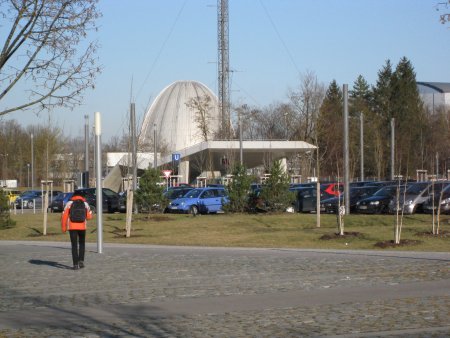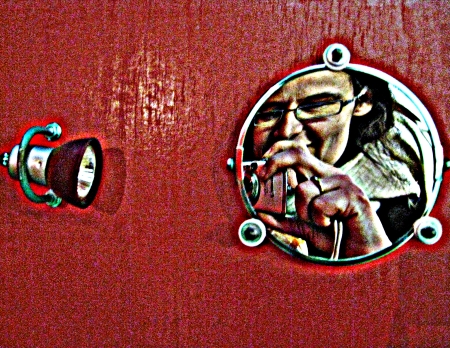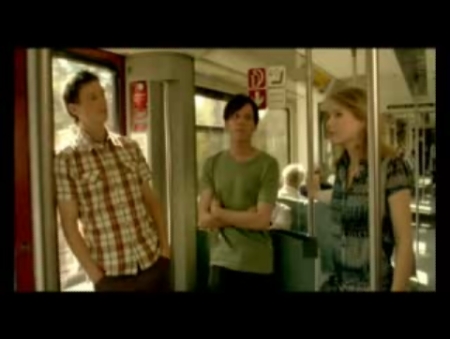The US american Edge Foundation, Inc.,
was established in 1988 as an outgrowth of a group known as The Reality Club. Its informal membership includes of some of the most interesting minds in the world.
The mandate of Edge Foundation is to promote inquiry into and discussion of intellectual, philosophical, artistic, and literary issues, as well as to work for the intellectual and social achievement of society.
The motivation for founding Edge Foundation was invigorated by the insight that:
In the past few years, the playing field of American intellectual life has shifted, and the traditional intellectual has become increasingly marginalized. A 1950s education in Freud, Marx, and modernism is not a sufficient qualification for a thinking person in the 1990s. Indeed, the traditional American intellectuals are, in a sense, increasingly reactionary, and quite often proudly (and perversely) ignorant of many of the truly significant intellectual accomplishments of our time. Their culture, which dismisses science, is often nonempirical. It uses its own jargon and washes its own laundry. It is chiefly characterized by comment on comments, the swelling spiral of commentary eventually reaching the point where the real world gets lost.
Furthermore:
America now is the intellectual seedbed for Europe and Asia. This trend started with the prewar emigration of Albert Einstein and other European scientists and was further fueled by the post- Sputnik boom in scientific education in our universities. The emergence of the third culture introduces new modes of intellectual discourse and reaffirms the preeminence of America in the realm of important ideas. Throughout history, intellectual life has been marked by the fact that only a small number of people have done the serious thinking for everybody else.
Thus “At the end of every year, John Brockman, a literary agent and the publisher of Edge.org, a Web site devoted to science, poses a question to leading scientists, writers and futurists” called “The Edge Annual Question — 2008”.
This years question was:
WHAT HAVE YOU CHANGED YOUR MIND ABOUT? WHY?
It was answered by 165 individuals. Looking at the names it seems that among the anwering intellectuals there were about 15 women and none of chinese descent.
I found this all highly inspiring it made me think of what I have changed my mind about, which was not to write my own answer on what have you changed your mind about.
I have been born to a place which -rather recently- had to endure a lot of societal conflicts and changes. And unfortunately these conflicts and changes were often very violent. This fact made me maybe more susceptible to think about how changes (and hopefully to the good) could be made without violence. I don’t think there is an easy recipe, but that on the other hand this doesnt imply not to try out recipes – if they do not look very harmful after a good portion of thinking. But of course this could go wrong.
Here is a draft resulting from a line of thoughts which originated basically in school, where I was taking – next to math – an emphasis class (Leistungskurs) in “social science” (I admit that my choice was partially due to the fact that there was no physics emphasis class offered at my school (a bavarian all girls school) and that the art teachers gave me the worst marks I ever got) .
“social science” included the discussion of political science, in particular ideas of political philosophers, the foundations of democratic systems etc. and a bit of sociology. I do not want to go too much into detail, but what I found in particular interesting was the sensitivity to rather subtle organisatorial differences such as between Representative democracy, Direct democracy, voting systems, control of power (legislativ, executive, jurisdiction) a.s.o. A big topic in school was to compare the current german democratic system (which borrowed a lot from the US american system) with the democratic system of the Weimarer Republic and the reasons for its failure, which seemed to had been in part due to organisatorial (mis-)conceptions.
Another interesting point was the societal origin of politicians (which doesnt mirror the societal mixture of Germany) and moreover the possible implications of the psychological processes which are involved with raising to political power within a democratic system. A politician has to be stress resistant, stable or at least emanating stability, resistant to intrigues and other debris of human interaction and be able to make fast decisions, which can have vast implications, a politician has to be responsible … In short: a certain breed of a human. This implies that an average of politicians would very probably act quite differently then an average of the overall population, which has its advantages and disadvantages. However the concrete ways politicians choose in their political daily life are often vastly informed by consultants and lobbyists.
And here we go. It makes sense to have consultants, last not least – a politician just doesnt have the time to dig through all the details, which are often needed for a political desicion. However the choice of consultants seems to be a rather obscure thing and as explained above not necessarily very representative. This is an obvious violation of the idea of democracy.
What can one do about this? Well direct democracy would be a possibility, but as I outlined above this may be a huge organisatorial change (and effort) with unseen consequences. There are certainly many other possibilities to soften this violation of the idea of democracy. And the proposition I am now going to make is hopefully not new and may be already partially realized and I just dont know about it. It is actually a – in my eyes – rather practical proposition. It is not easy to realize but on the other hand not impossible to realize.
It can be seen as a tool for collaboration and democratic control, in principle such a tool can have very good implications on societies, just as wikipedia. I imagine a global online platform, where global experts vote on the right answers to much needed questions and were the outcome of a vote shall function as an advice to political leaders. What are experts? I imagine the faculty of universities should be experts enough. This excludes many good thinkers and artists but taking only university members makes the authentification and organization easier. Last not least the system of universities spans a global net with a rather (emphasis on: rather) high neutrality towards cultural and gender sensibilities, a huge expertise and access to local administrations. And I think meanwhile all universities should be online (?). The voting to the questions could be weighted by subjects. Local questions could be advised by local universities. The number of votes for global questions could be adjusted in accordance to UN proportions. The voting itself could be made very direct (like that in important questions all faculty members should vote). The process of setting up voting issues and their evaluation could be made very transparent. However the voting itself should be made confidental, the encryption and transmission should be done by the wittiest mathematicians in order to protect the voting scientist. So yes this needs a lot of effort….and finally money. But it is not impossible. It may saveguard politicians if they have to make really tacky desicions, which are facing or will face manhood soon. It could empower the UN to enforce desicions against local warlords.
I definitely do not have the money and the patience and influence to set such a thing up. I reserved a domain name for the platform, called consciencement.org in similarity to the word parliament containing the latin roots: with science mind and reminding of the words concise and conscieusement. just a proposal. could accelerate things.
so i hope some day someone who knows enough of the influential elite will come by this blog and pick up on the idea. Or even better tell me that it already exists!!
Where I was born? I was born in Berlin-West, in a district, which has a long military tradition and which hosts a real fortress from the 16th century (here some images of the fortress.)
update May 25, 2019:
The content of the above post had been detailled in the march 2008 preprint: On the need for a global academic internet platform.
In the post about the march for science from April 2017 I described how science academia had changed to the worse and that I wouldn’t support anymore the establishment of such a platform, I wrote in reference to the 2008 preprint:
Anyways it’s been now almost 10 years ago that I warned that the public increasingly doesn’t see whats in for them for the money they’ve been giving to academia and that scientists themselves are increasingly under pressure to find for themselves projects with “successful outcomes” and I think things got way, way worse since then. I don’t know if academia is “collapsing”, but it is meanwhile in a state that I think in particular it may not be advisable to organize something as the platform I had proposed roughly 10 years ago -at least not in that form.





